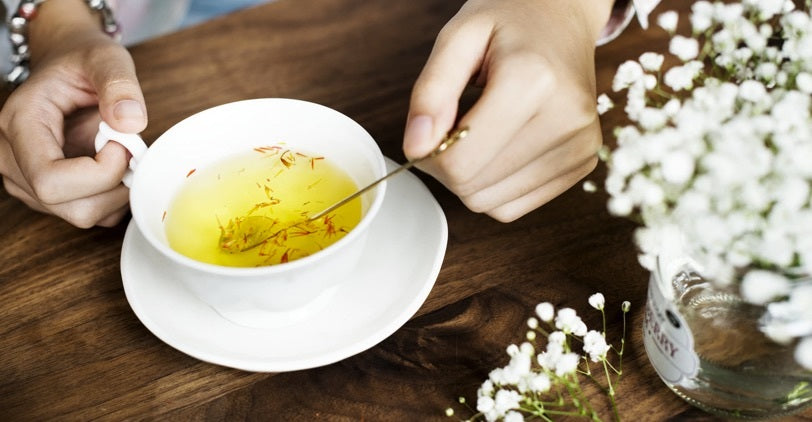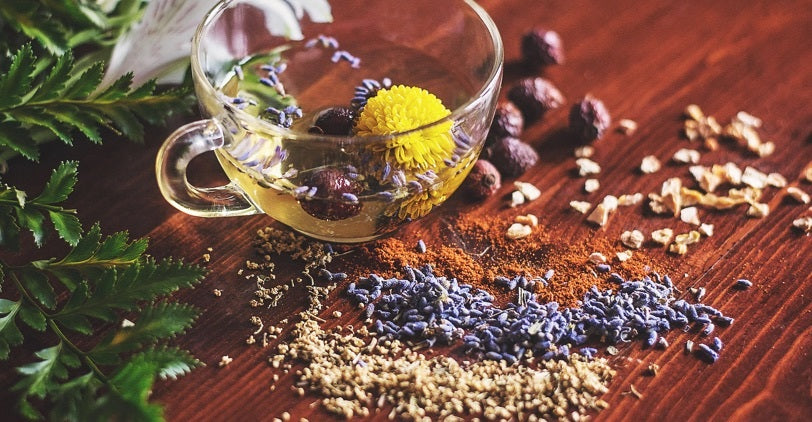THE HEALTH BENEFITS OF DRINKING TEA WITHOUT CAFFEINE
Tea is respected around the world for its many positive effects on our health. But for some, teas containing caffeine are seen as something to avoid. Luckily, caffeine-free tea offers the many of the same benefits as regular tea -- without the same potential side effects.
WHY DRINK CAFFEINE-FREE TEA?
While a small amount of caffeine may be beneficial, some people choose to avoid it due to a health condition or sensitivity. Caffeine is stimulating, and excessive consumption can result in jitters, irregular heartbeat, anxiety, and adrenal fatigue. Decaffeinated tea is also preferable for drinking at night since caffeine may also cause insomnia when consumed too close to bedtime.

HEALTH BENEFITS OF CAFFEINE-FREE TEA
In general, studies overwhelmingly show that drinking tea has a positive effect on overall health. Decaffeinated blends are no exception, and can be enjoyed by virtually anyone.
GREEN AND BLACK TEAS
Both green and black tea contain compounds known as flavonoids. Also called polyphenols, catechin and quercetin are the two available in the highest amounts. Catechins are potent antioxidants capable of combating the cellular damage free radicals create in our bodies during normal metabolic processes, stress responses, and reactions to chemical exposure. Free radicals are unstable molecules that can cause everything from premature aging to DNA damage. Studies are ongoing, but early research suggests catechins in tea may serve to stabilize free radicals, neutralizing them and rendering them harmless.
Quercetin is a powerful anti-inflammatory compound known to block the production of histamine in the body. Since histamine is a major player in allergic reactions, teas containing quercetin may be helpful for those who suffer from mild seasonal allergies. Inflammation is also an underlying problem in most degenerative conditions, making quercetin potentially beneficial for a wide range of health problems from heart disease to arthritis.
Other benefits of catechins and quercetin may include higher HDL "good" cholesterol levels, prevention of plaque buildup in arteries, blocking the uptake of cholesterol and even cancer prevention.

HERBAL TEAS
Herbal teas are not technically a form of “tea” since they aren’t made from the camellia sinensis plant used to make all tea varieties, and they are often called “tisanes” to avoid confusion. As a result, these blends of herbs, flowers and spices and contain no caffeine. They offer a unique blend of flavors and benefits. Depending on a tisane’s herbal and floral ingredients, it may have the ability to fight illness or prevent degenerative disease.
Antioxidants are present in most herbs, and many are capable of medicinal effects. Chamomile is known for its calming effect, while ginger is often used as a digestive aid and licorice root is helpful for a sore throat. Other herbal blends carry a range of health benefits of varying degrees, and each tisane brings its own distinct flavor, aroma, and character to every cup you enjoy.
Click here to see all our caffeine-free blends.
NOTE: These statements have not been evaluated by the Food and Drug Administration. This product is not intended to diagnose, treat, cure, or prevent any disease.